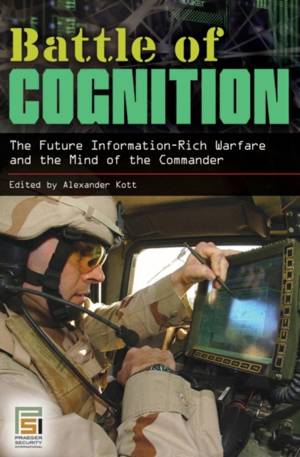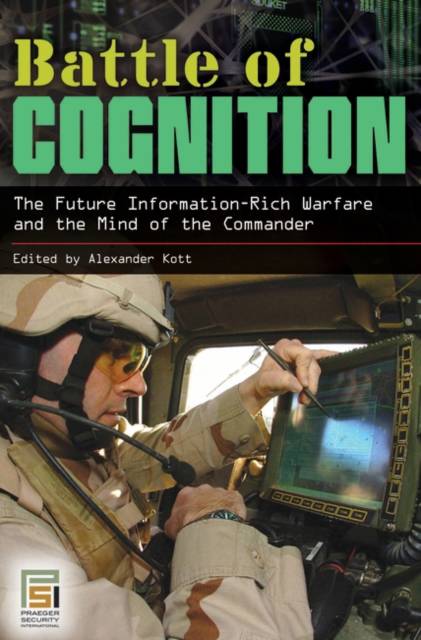
- Retrait gratuit dans votre magasin Club
- 7.000.000 titres dans notre catalogue
- Payer en toute sécurité
- Toujours un magasin près de chez vous
- Retrait gratuit dans votre magasin Club
- 7.000.0000 titres dans notre catalogue
- Payer en toute sécurité
- Toujours un magasin près de chez vous
Battle of Cognition
The Future Information-Rich Warfare and the Mind of the Commander
Alexander KottDescription
What if the true weak link of the Information Age force is not the hardware of machines, but the software of the human mind? And if so, could it be that the entire conceptual structure of the Information Revolution theorists, at least as it applies to military affairs, is built on sand, on the notorious fickleness of human cognition? These are the questions this book strives to examine. Looking at the command and control of information-rich warfare, the contributors explore its potential new processes, techniques, and organizational structures. As they do so, they find reasons for both optimism and concerns about the limitations of human cognition and supporting technologies in commanding battles in the Information Age.
Since the beginning of the Information Revolution, the military in the United States and elsewhere has been analyzing and implementing the changes driven by the rapidly advancing information technologies. Among military theorists and practitioners, many focus on the Information Revolution's impact on matters of military equipment. Far fewer, however, seem to worry about the gray matter--the mind of the commander, the place where all the information power of the new age is supposed to converge and to yield its mighty dividends. Consider that it is the human mind, particularly the minds of military commanders and their staffs that remain the pinnacle and the ultimate consumer of the rapidly growing information flows. What if the true weak link of the Information Age force is not the hardware of machines, but the software of the human mind? And if so, could it be that the entire conceptual structure of the Information Revolution theorists, at least as it applies to military affairs, is built on sand, on the notorious fickleness of human cognition? These are the questions this book strives to examine. Looking at the command and control of information-rich warfare, the authors explore its potential new processes, techniques, and organizational structures. As they do so, they find reasons for both optimism and concerns about the limitations of human cognition and supporting technologies in commanding Information Age battles.Spécifications
Parties prenantes
- Auteur(s) :
- Editeur:
Contenu
- Nombre de pages :
- 272
- Langue:
- Anglais
- Collection :
Caractéristiques
- EAN:
- 9780313349959
- Date de parution :
- 01-12-07
- Format:
- Livre relié
- Format numérique:
- Genaaid
- Dimensions :
- 165 mm x 236 mm
- Poids :
- 571 g

Les avis
Nous publions uniquement les avis qui respectent les conditions requises. Consultez nos conditions pour les avis.






